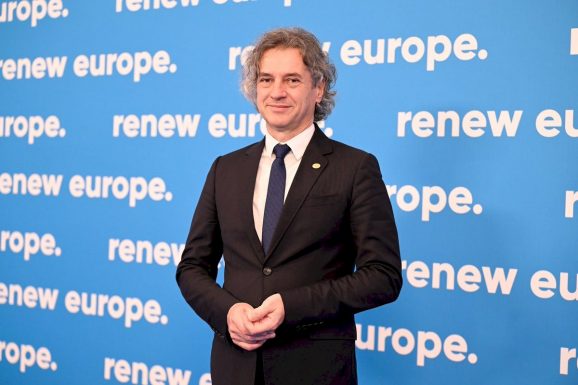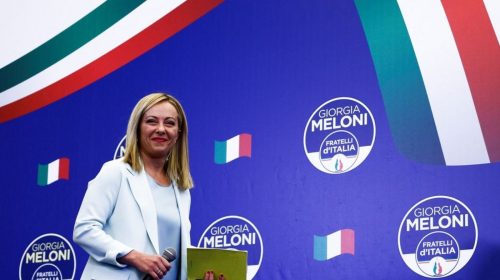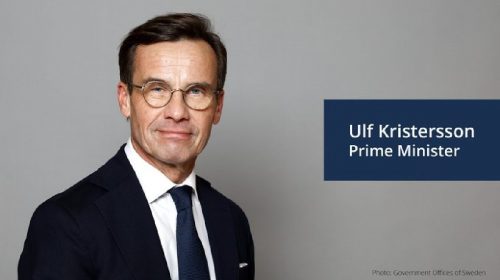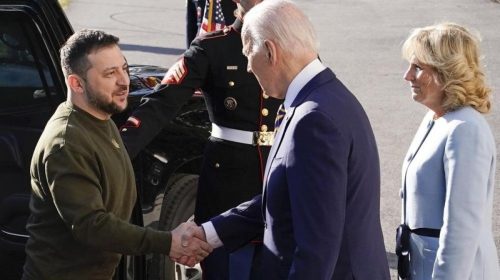Populist prime minister Janez Jansa, a supporter of Donald Trump who was accused of taking Slovenia on a similar right-wing path to Hungary, was ousted after a surprise election result in April.
A new liberal party, the Freedom Movement, shocked observers by winning a 34.5% vote share, compared with 23.6% for Janša’s Slovenian Democratic Party.
Party founder and leader Robert Golob became Slovenia’s new prime minister.
Throughout the election campaign, Golob framed the vote — which saw the highest voter turnout since 2000 — as “a referendum on democracy”, accusing Janša of undermining democratic institutions and press freedoms since he took over in 2020.
He also promised to salvage his country’s relationship with the EU, which has been badly damaged by Janša’s overtures to the Hungarian nationalist leader Viktor Orban.
“This country has always been oriented towards Western Europe and I am convinced that we will return to our family,” Golob told AFP during the campaign.
Political newcomer liberal Robert Golob defeated Slovenia’s three-time Prime Minister conservative Janez Jansa in elections on Sunday in a country split by bitter political divisions over the rule of law.
Golob’s Freedom Movement (GS), which he launched only in January, has built on anger with Jansa’s regime in the former Yugoslav state.
The opposition accuses Jansa of having tried to undermine democratic institutions and press freedoms since he returned to power in 2020.
With almost all the votes counted in the country of around two million people, Freedom Movement (GS) stood at 34.5 percent of the vote compared to 23.6 percent for Jansa’s Slovenian Democratic Party.
‘Back to freedom’
“Our objective has been reached: a victory that will enable us to take the country back to freedom,” Golob told jubilant supporters late Sunday.
“People want changes and have expressed their confidence in us as the only ones who can bring those changes,” he said earlier via a livestream from his home where he was in isolation after contracting Covid-19.
The 55-year-old former power company manager has promised to restore “normality”, having billed the elections as a “referendum on democracy”.
Political analyst Miha Kovac said civil society and younger voters in particular had been mobilised. Analysts had expected an increased turnout and for voters to turn against Jansa’s style.
Turnout stood at some 70 percent of the 1.7 million electorate — significantly higher than the 52 percent in the last parliamentary elections in 2018.
“The vote was a vote against Jansa,” said Kovac. “Against Slovenia on the Hungarian path, against an illiberal democracy in Slovenia, against the government taking over the public television, against the control of judiciary.”
But he warned that GS had no government experience — even though it could partner with the more experienced Social Democrats (SD), who have 6.7 percent of the vote with almost all ballots counted.
“It’s like a company that abruptly grows,” Kovac added. “It has no infrastructure, no know-how, no people that know how to work in parliamentary bodies.”
Jansa, 63, an admirer of US ex-president Donald Trump, had campaigned on promises of stability.
“Ahead of the new government there are many challenges, but during our mandate we have set a solid ground for a peaceful navigation,” he said late Sunday.
“It is easy to pay billboards, to have the backing of all media and the so-called civil society,” he said. “But then hard work and challenges come, and there nothing of that can help you.”
‘Breaking point’
Uros Esih, a columnist at one of Slovenia’s leading dailies Delo, told AFP ahead of the elections that they represented a “breaking point” with “liberal and illiberal political forces clashing” in Slovenia.
The rise of Golob began when he took over a small Green party without parliamentary seats in January, renaming it Freedom Movement.
He tapped into the protests that had developed since Jansa took power, as tens of thousands of people regularly attended anti-government rallies.
“I hope the situation will change… It is obvious that most of the people are not satisfied with this government and the way it’s governing,” Sara Rigler, a 21-year-old psychology student, told AFP at a polling station in the capital Ljubljana earlier Sunday.
Jansa’s image has been hurt by rows with Brussels over his moves to suspend funding to the national news agency, and to drag out the appointment of prosecutors to the bloc’s new anti-graft body.
Russia’s invasion of Ukraine did not take centre stage in Slovenia’s election campaign, although Jansa was among the first foreign leaders to travel to Kyiv, on March 15.
Jansa already served as prime minister between 2004 and 2008, and 2012-2013.
Only a year into his second term as premier however, he was forced out by a corruption scandal.
In July, three months after the vote, Slovenia became the first post-communist European country to legalise same-sex marriage, part of Golob’s socially progressive agenda.
Slovenia has also backed the expansion of the EU’s free movement zone to include Croatia. Slovenia’s decision to back this move is poignant given that the two countries have been involved in a three-decade long border dispute – which previously saw Slovenia block Croatia’s ascension into the EU.
Janša began his third term as Slovenia’s prime minister in 2020. As well as facing accusations of sliding toward authoritarian rule in the style of Orban, he came under EU scrutiny amid reports that he pressured opponents and public media, launched attacks against journalists, and installed loyalists in key positions for control over state institutions.




